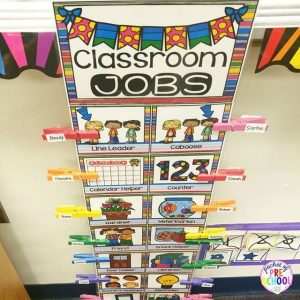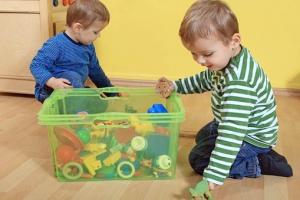No products in the cart.
Teaching Responsibility in an ECE Setting
When we allow young children to be more responsible, we lay the ground for them to become more responsible adults. In this month’s Ilm o Amal, TRC staff discusses how ECE teachers can help children develop the skills to become more independent and responsible.
An ECE environment offers multiple opportunities for a child to take on age-appropriate responsibility. The level of responsibility changes as the child grows up, based on his or her ability. The process begins with the child  learning to take care of him or herself practically, say by learning to button, zip or tie up shoelaces. Not only does the child get the first taste of success with these personal tasks, these are also one of his or her first lessons in independence. The independence allows children to build a sense of responsibility and soon they will not need to be told to button their shirts or tie their shoelaces. They will do be doing these things on their own without being told. When we teach children responsibility they complete tasks because that is what they have to do in that moment and not because they will receive rewards for doing them.
learning to take care of him or herself practically, say by learning to button, zip or tie up shoelaces. Not only does the child get the first taste of success with these personal tasks, these are also one of his or her first lessons in independence. The independence allows children to build a sense of responsibility and soon they will not need to be told to button their shirts or tie their shoelaces. They will do be doing these things on their own without being told. When we teach children responsibility they complete tasks because that is what they have to do in that moment and not because they will receive rewards for doing them.
From personal responsibilities children move onto bigger lessons of practical life, like cleaning up a space after they have finished working there. Children enjoy activities such as carrying dishes and setting the table because it makes them feel older. This is obvious when a child’s face lights up with joy when he or she exclaims “I did it!”. The eventual aim is to nurture children who are confident and self assured –children who don’t wait for others to tell them what to do.
Here are a few ways to teach children responsibility in an ECE setting.
1. Model Responsibility
Modeling the behaviour you want children to emulate is the most effective way to teach them any useful life skill. Talk to children about the importance of responsibility and tell them that it is time to put away the dishes / put the chairs back in their place / clean up. When you state ‘Now we will put the books back in the shelves,’ using ‘we’ stresses that this is everyone’s responsibility and they all have to participate in this activity.
2. Give Time and Space
It can be very tempting to expedite things and do a child’s task for him or her, however whether you are a parent or a teacher, resist the urge. Concentrate on the child’s efforts rather than on his actual accomplishments. Whatever he or she accomplishes is not likely to be perfect, especially if a task is being done for the first time. However, criticizing the effort, fixing it to make it more ‘perfect’ or doing it for him or her will quash his or her desire to help. If the child gets a particular task completely wrong, praise what is right about it and encourage him or her to make the required change. You can phrase this in the following way: “You put your chair back in the right place. But I like to put my plate next to the sink, not on the shelf.”
3. Be Specific in Your Praise
Instead of saying “Good job!” to a child for being responsible, say “ You put the books back so neatly” and “Thank you for picking up all the crayons. You cleaned up so well.”Whenever appropriate tell the child how his or her actions have helped the other children in the classroom or in the school. This will help the child develop a sense of ownership.
4. Phrase Things Positively
Avoid issuing ultimatums and bribing children to get them to do things. Offering bribes trains children to want something for completing tasks that they should be accomplishing anyway. Instead of saying, “If you put away the books, you can get a treat,” be matter-of-fact and say “You can play with the train after putting the books away.”
5. Prioritize Work and Play
The ECE setting is the optimal environment to start teaching the concept of first things first. The message you should convey is that work comes before play. So say ‘Yes we can go out to play, but first let’s put all the dishes back in place.” You can let the children know that you also think playing outside is more fun, but responsibility comes before that. Help children think that when they have done what they have to do (i.e. the responsibility), they can do what they want to do (the fun).
6. Assign Tasks
Give children small jobs around the classroom. There are many tasks that young children can take on, such as  collecting the crayons, sharpening the pencils, fixing the bookshelf and putting the toys back in place. You can also assign these tasks according to a rotating system, so everyone knows what they have to do in advance. Taking on responsibility will help develop a sense of importance in the children.
collecting the crayons, sharpening the pencils, fixing the bookshelf and putting the toys back in place. You can also assign these tasks according to a rotating system, so everyone knows what they have to do in advance. Taking on responsibility will help develop a sense of importance in the children.
7. Find Responsible Solutions
Encourage children to find solutions to different problems. Present a range of age-appropriate situations and ask children to come up with solutions for them. For instance what should they do if they see another child littering the playground, or when a stranger offers to take him or her home. Ask the children to come up with a responsible solution and then pick the one that is most responsible and discuss why it is the best solution. Doing this on a regular basis is an interactive way to teach children to be more responsible.
As an ECE teacher you can help children develop the skills to become more independent and responsible as they grow. When we allow young children to be more responsible, we lay the ground for them to become more responsible adults. Do you have other ways that you teach students to be responsible in your classroom? We would love to hear more about how you work on this important skill.
April 2017

